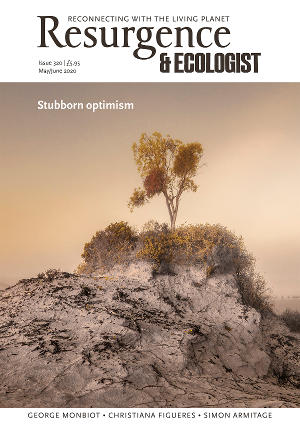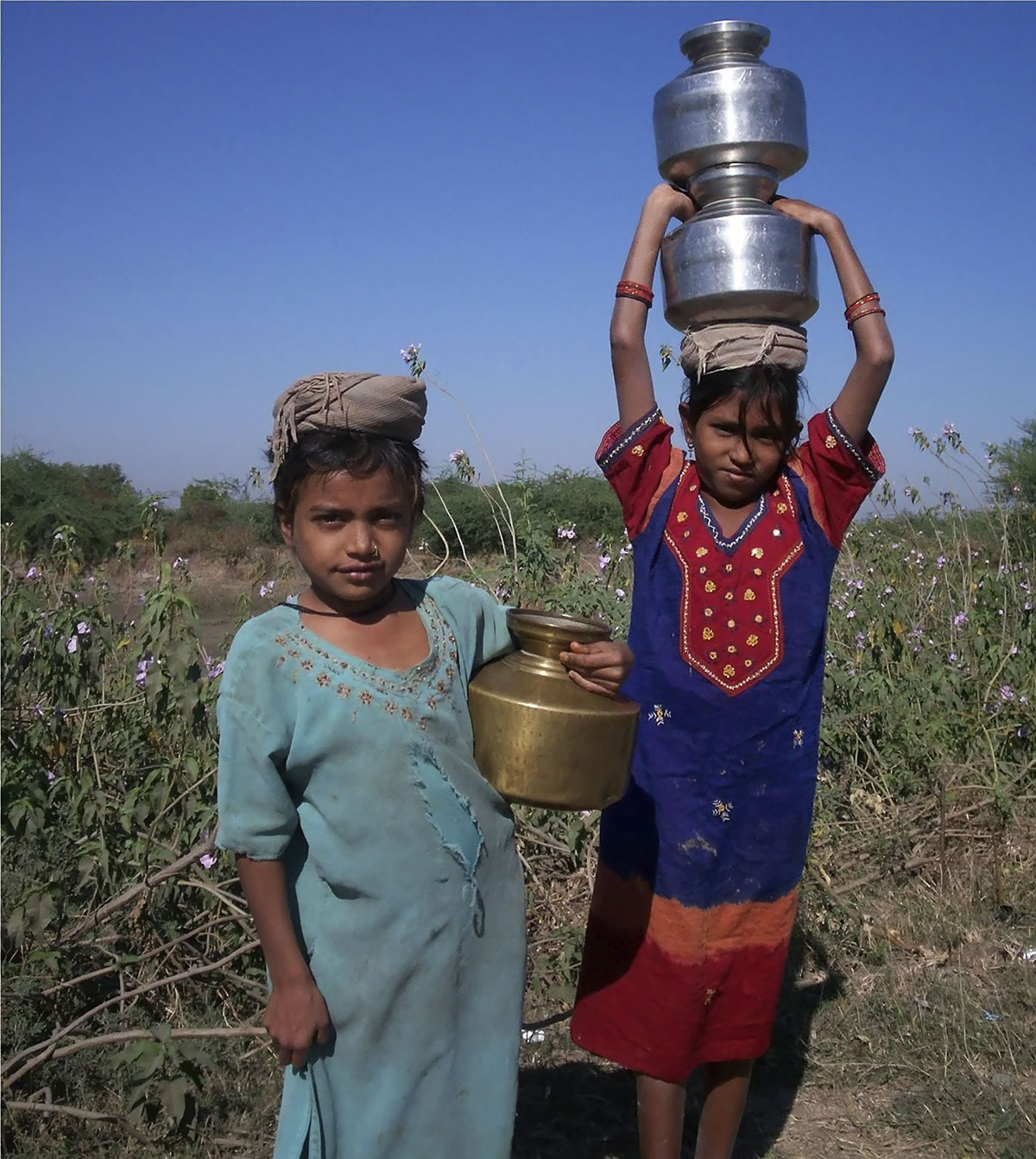India is home to over half a billion of the world’s children. It is a country already experiencing the climate crisis in the form of severe droughts and floods. Ridhima Pandey is a 12-year-old girl from a small city in North India who advocates for climate justice on behalf of her generation. When I met her, she seemed shy, her voice barely audible, but underneath her soft-spoken demeanour is a sharp, straight-talking girl.
Ridhima’s hometown, Haridwar, is 209 kilometres from the capital, New Delhi. It lies on the banks of the Ganga, the most sacred river in India but also one of the most polluted rivers in the world. A popular pilgrimage site, this ancient city is expanding haphazardly with battered buildings and flashy new ones existing side by side. Ridhima lives right next to a flyover that has been under construction for 10 years, and a huge multi-storey block towers over her family’s two-storey home.
Born to Vinita and Dinesh Pandey, who work as field officers in forestry and wildlife conservation, Ridhima and her younger brother were introduced to Nature early on. A family outing for the Pandeys meant a walk in the forest or a visit to an animal rescue centre. It was in the summer of 2013 that Ridhima first heard of climate change. Like many another 5-year-old, she wanted her mother to put a cartoon show on TV. Instead, she ended up watching visuals of the devastating floods that wreaked havoc in her state, Uttarakhand. “My mum took a piece of paper and explained to me what the globe was and how it was warming. The concept was unclear to me, but I wanted to learn more,” says Ridhima.
When she was 8 years old she would often chat about the climate crisis with a family friend who was a lawyer. One day he told her that the Indian Constitution had given children the right to clean air, water and environment, but that the government had failed to protect these rights. Ridhima wanted to be a police officer when she grew up, but at that moment she had a jarring realisation that her dream might never come true because as an adult she could be struggling for survival in the face of climate catastrophe. It was this that drove her to take action, though she admits, “To this day, I am scared of what’s going to happen.”
In 2017 Ridhima filed a petition against the Indian government via the National Green Tribunal (NGT), for not taking adequate action to prevent the climate crisis. In early 2019 the NGT, a body set up to look into environmental issues, dismissed Ridhima’s plea with an order stating that climate change was already covered under the Environment Impact Assessment. Despite feeling very disappointed at this adjudication, Ridhima did not give up the legal fight. A few months later she filed a petition in the Supreme Court, where she is still awaiting a hearing.
In September 2019 Ridhima and 15 other young people from around the world filed a Human Rights complaint about the climate crisis to the United Nations Committee on the Rights of the Child. The petition stated how five countries – Argentina, Brazil, France, Germany and Turkey – had failed to bring down their emissions despite knowing about the disastrous consequences of their inaction. That month Ridhima also attended her first protest by participating in the Global Climate Strike in New York.
The next day, when she saw aerial photos of the protest in the media, she couldn’t believe that many thousands of protesters had been marching behind her. After she made headlines at the UN Climate Talks, Ridhima was invited to events in India and abroad. This meant she had to skip school for all of January 2020. Despite her good grades, she feels this was a big loss. She is now busy studying day and night for her final exams, which are imminent. Ridhima has participated in climate strikes in three Indian cities, but she has yet to organise one in her own. “We’re trying to do one in Haridwar. I don’t know who is going to help me organise it, but I’ll do it after my exams,” she says.
India ranks fifth in the Global Climate Risk Index 2020, making it one of the world’s most vulnerable countries in the climate emergency. “As a developing country, India is going to face more difficulties,” says Ridhima. “People here are not very aware about the climate crisis... The environment is not on their priority list, so the government is also not giving it importance.” Indian children, especially those living in poverty, are most at risk. “Children are the most vulnerable to climate change because their immune systems are not yet fully developed. So air pollution or new diseases affect them the most,” she explains.
Last year there were reports of children travelling by train to fetch water for their families in drought-affected villages in Western India, with some even dropping out of school to do so. Ridhima feels that privileged children need to use their resources to prove that the crisis is real, and include poor children in the fight for justice. “Children can form a team in their locality and make their friends and relatives aware,” she says. Her plan is to form a Children’s Team that will go to schools and colleges in her city urging young people to take climate action. The children she meets through the events she attends often send her messages on social media sharing how they have organised a strike in their neighbourhood or given a talk on the climate crisis in their schools. “When they really act on it, it’s great satisfaction for me,” she says.
Although Ridhima feels that she has a normal childhood, her activism has created minor irritations in her life, from schoolchildren who tease her for harping on about the climate to adults who troll her on social media. She has been dubbed by some “India’s Greta Thunberg”, but although she is acting in the same cause, Ridhima inhabits a very different world where climate issues are already impacting on her life. She has learnt to ignore naysayers and stay focused on her mission, but she has mixed feelings about being called India’s Greta. “I have my own identity. I really can’t tell the media not to call me Greta because most people don’t know who Ridhima Pandey is, but they know who Greta Thunberg is. So, yes, it’s a good thing they are comparing my work to hers, but one day I will become known as Ridhima Pandey,” she says.








